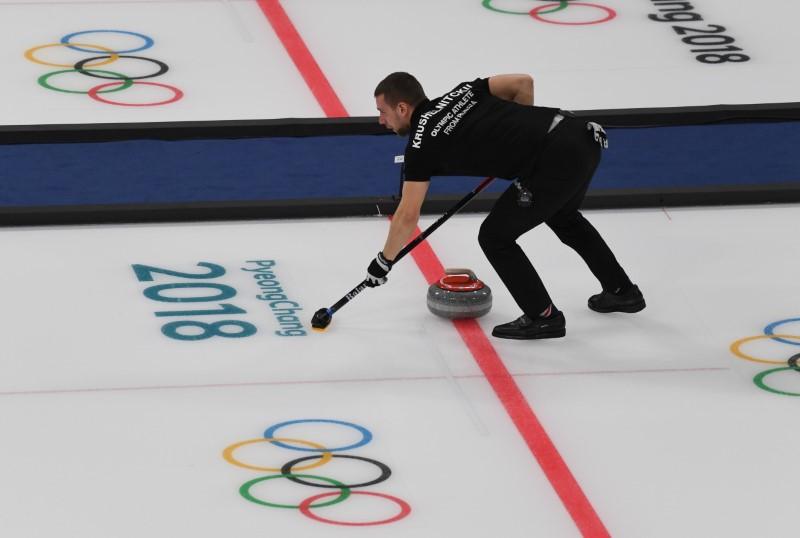
GANGNEUNG, South Korea (Reuters) – A Russian Olympic medalist has left the Pyeongchang Winter Games on suspicion of doping, a team official said on Monday, in a scandal that has shocked his teammates and could imperil Russia’s efforts to regain full Olympic status.
Alexander Krushelnitsky, who competes in curling, one of the Games’ least physically taxing sports, is suspected of testing positive for meldonium, a banned substance that increases blood flow and improves exercise capacity.
Asked for an update on the case, Russian delegation spokesman Konstantin Vybornov told Reuters the athlete had surrendered his Games accreditation and left the Olympic village while awaiting the result of a second sample later on Monday.
He later denied having referred to any individual by name. But Russian women’s curling coach Sergei Belanov replied to reporters’ questions about Krushelnitsky, dismissing the idea that a “young, clever man” would use drugs in a sport where they would produce “no benefits”.
“It’s stupid, but Alexander is not stupid, so I don’t believe it,” Belanov said.
Krushelnitsky won bronze with his wife Anastasia Bryzgalova in mixed-doubles curling in Pyeongchang. He has not responded to a request for comment.
Suspicions of a doping violation have rocked the Russian team, which have been trying to draw a line under years of drug-cheating scandals, and shocked the sport of curling, where steady hands and sharp eyes outweigh physical fitness.
Doping case launched against Russian athlete: tribunal
Russian curling federation president Dmitry Svishchev said Russian curlers had been tested on Jan. 22 before flying out to South Korea and the tests were negative.
“I have known these guys for many years. Only a crazy person takes banned substances before a competition, before the Olympics,” Svishchev said on Sunday night when the news first broke. “It’s a strange story. It raises a lot of questions.”
The World Anti-Doping Agency banned meldonium with effect from January 2016, deeming it performance-enhancing because it enabled users to carry more oxygen to muscle tissue, something of benefit to endurance athletes in particular.
Former world tennis number one Maria Sharapova of Russia was barred from competition for 15 months after testing positive. In total, more than 170 athletes, including over 40 Russians, have tested positive for the drug since it was banned.
 0 comments
0 comments





